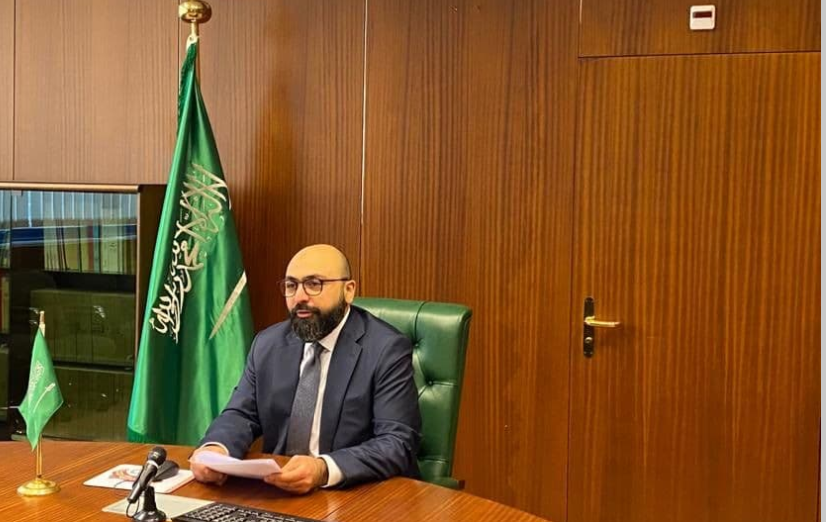
The Kingdom of Saudi Arabia has rejected criticisms directed at it by the High Commissioner for Human Rights and the European Union in the framework of the 46th session of the Human Rights Council.
In remarks in the framework of the right to reply under Item Two of the session on 2 March 2021, a member of the delegation to Geneva, Mohanad Al-Basrawi, stated that the release of Loujain al-Hathloul was purely the result of national judicial actions, and that her trial and release were in accordance with the requirements of the provisions of her sentence.
On 28 December 2020, Saudi Arabia sentenced al-Hathloul to five years and eight months in prison in connection with her rights activities and despite the abuses and torture she suffered over a two-year period. Al-Hathloul continues to be harassed by being banned from speaking out and traveling.
Saudi Arabia claimed that its terrorism law is only used against those whose actions undermine national security and the social fabric. UN special rapporteurs have noted that abuses of the terrorism law affect human rights, and that Saudi Arabia uses the terrorism law to prosecute human rights activists and advocates and hand down unjust sentences against them, including the death penalty.
Al-Basrawi stated that his country’s government guarantees the right to freedom of opinion and expression that does not conflict with maintaining security, public order, and the rights and freedoms of others, in accordance with international standards. Saudi Arabia’s speech ignored the ongoing arrest of individuals exercising their right to express their opinion. This right is criminalized under several laws, so that, for example, criticism of the king or the crown prince is considered a crime.
ESOHR emphasizes that Saudi Arabia’s statements before the HRC contain misleading information, and that the Saudi delegation, in its rejection of the criticisms, is displaying its intention to persist in its use of misinformation.
